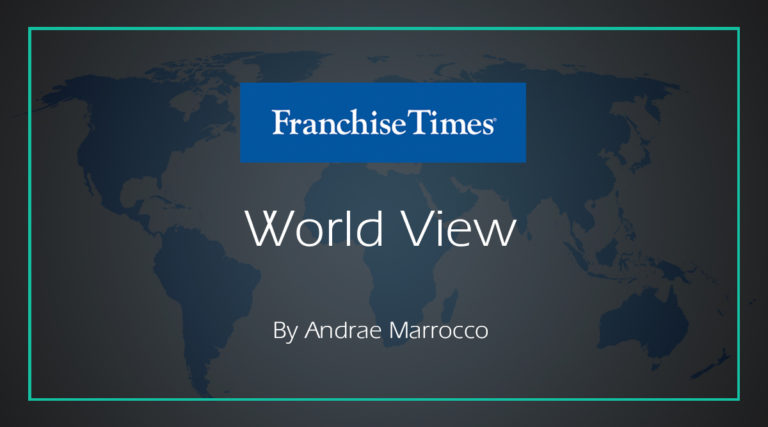
This article was first published online by Franchise Times on December 19, 2019 and subsequently published in the January 2020 print edition.
Franchise systems are now exploring and expanding internationally more rapidly than ever before, doing so at earlier stages of their development, and by way of progressively more interesting and creative franchise arrangements. International expansion has been a successful venture for some brands, in certain cases because of precise planning and efficient implementation of strategy, in other cases as a result of good future, and yet others a mixture of both.
I’ve practiced as a transactional lawyer for almost 20 years, with the majority of it in connection with international transactions of one kind or another. I am a partner and co-chair of the Franchise & Distribution Group in the Toronto office of McMillan LLP, a full service national Canadian firm focused on international transactions.
However, my career and practice in fact began many miles away on the much-romanticized continent of Australia where I spent the first 10 years of my career (between Adelaide and Sydney) in various transaction-based practice areas.
Given that background, it is only fitting to focus my first column on Australia. Known for its prolific deadly animals, harsh terrains and remoteness, and for its unique wildlife, breathtaking landscapes and cosmopolitan cities, Australia has fascinated and even tantalized franchisors. With approximately 1,300 franchise systems operating in Australia, franchising is certainly not a foreign concept, nor is the appreciation of the advantages that the franchise business model brings to the business environment. Interestingly, the hierarchy and popularity of North American-based brands is sometimes vastly altered when transported to the Land of Oz.
Without revealing identities, this is certainly the case when considering the Australian population’s preferences and proclivities vis-à-vis the behemoth quick-service restaurants.
A mix of emerging and local brands
Australia’s comfortability with, and acceptance of, franchising goes beyond the success that big international franchise systems like KFC, Burger King (which operates under the trademark “Hungry Jacks” in Australia), Subway and McDonald’s have experienced. Firstly, numerous smaller international systems (including emerging brands) are finding traction in Australia. Second, there has been significant growth in the number of local franchise concepts emerging and developing within the continent. Finally, in full circle fashion, homegrown Australian franchise concepts that have flourished locally are venturing across borders. Take, for example, F45 Training, a boutique fitness concept founded in Sydney in 2012 that now has more than 1,500 franchises in 40-plus countries. Mark Wahlberg acquired a minority stake in the business in March 2019, at that time valued at around $450 million. The speed with which the brand is expanding across North America is admirable.
Another interesting success story, in a similar yet distinct context, is Gloria Jean’s Coffees. Two Australian entrepreneurs saw potential in the now 40-year-old modest Chicago coffeehouse, and brought the brand to Australia. It expanded to become one of the preeminent coffee brands in Australia, before the entrepreneurs decided to purchase the entire Chicago-based franchise system and expand internationally.
Part of the success of the Gloria Jean’s expansion has been its ability to adapt to the local culture and environment while using the uniqueness of each market to maintain a core brand essence. “For example, Gloria Jean’s has a 835-square-foot store in Bangladesh that is very much a destination for locals that don’t frequent bars and clubs like their Western counterparts, so the Gloria Jean’s experience is quite different from someone in Bangladesh who will make a night out of visiting Gloria Jean’s to a consumer in London grabbing their morning coffee on the way to work,” said International GM Grant Fischer.
Challenges persist
Despite the strong presence of franchising in Australia, there are a number of economic and cultural challenges of which franchisors ought to be aware. International franchisors entering the Australian market typically find Australia to be a high-cost market, particularly with respect to labor rates (minimum wage and penalty rates), which are high by international standards. Securing real estate locations can be a challenge, property rentals and energy costs also being high by international standards (particularly in the case in major shopping malls). Furthermore, the culturally diverse demographic of Australian shoppers requires a culturally sensitive approach to establishing an international franchise locally. The culture is distinctly influenced by European, Asian, and African migration, in addition to the historical influences from the U.S. and United Kingdom.
While Australia already has a reputation as one of the most heavily regulated franchise sectors in the world, the trend is toward greater and not lesser regulation, said Shaun Temby, partner with Australian law firm Maddocks. Moreover, Australia has been in the news lately for its strict (or what some may call commercially unfriendly) approach to franchising. It is becoming increasingly evident that the Australian government’s expectation is that franchisors take a more practical, holistic and transparent approach to disclosure and to engage further with franchisees in decision-making, says Temby.
On the enforcement front, the courts are looking to a higher standard on disclosure documents, particularly in requiring meaningful and thoughtful disclosure rather than a one size fits all mentality.
In weighing the costs and benefits of doing business in Australia, franchisors may ask themselves if the business investment and risks are worth the endeavor.
Ultimately, Australia’s “rugged” business environment is certainly worth considering if your franchise system is a cultural fit and the typical best practice elements are present. Franchisors that give it a go will discover Australia is a rewarding place to do business, with one of the highest rates of franchised businesses per capita.
